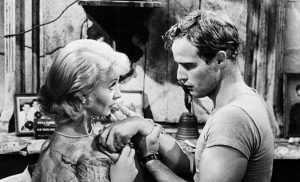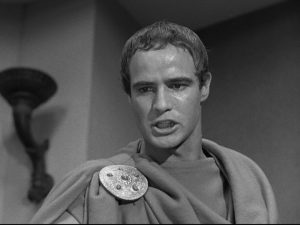Katy Hessel, the voice behind a popular podcast called Great Women Artists recently published an already award-winning book entitled The Story of Art Without Men. As the Financial Times reviews, “Katy Hessel’s unapologetically revisionist book campaigns against the patriarchy of the art world.” That women artists have struggled for centuries to be taken seriously is a point that would not be lost on Hilma af Klint, the focus of our opening film, Hilma. af Klint is a fascinating artist whose works created space for spirituality and art to intertwine, and her visionary creations challenged conventions and helped redefine the art world.
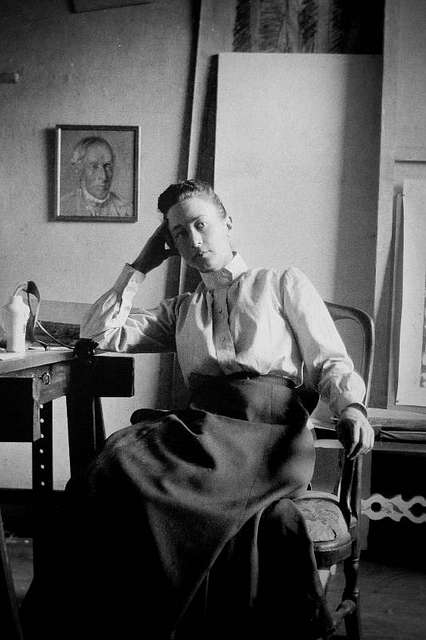
Copyright: Public Domain
Hilma af Klint (1862 -1944), often hailed as both artist and mystic, found a profound connection between these two realms. As a devoted follower of Theosophy, a religious movement influenced by diverse traditions such as Christianity, Hinduism, and Buddhism, af Klint said she received divine instruction during seances, urging her to paint the hidden world that lay beyond human perception.
From a young age, af Klint’s artistic talent blossomed, leading her to become one of the first women to receive formal training at the esteemed Royal Academy of Fine Arts in Sweden. Over five years, she honed her skills in drawing, portrait painting, anatomical drawing, and landscape painting, graduating with well-deserved honors. At the academy, she encountered Anna Cassels, her first romantic partner, with whom she co-founded “The Five,” a group of like-minded women fascinated by spiritism. Guided by the revelations from seances as early as 1896, af Klint ventured into “automatic drawing and painting,” describing herself as a conduit for the spiritual realm. In 1906, she embarked on her first abstract works, exploring non-representational art long before it gained prominence.

by Hilma af Klint
Copyright: Public Domain
For af Klint, her art and religious beliefs were inseparable, serving as the driving forces behind her creative endeavors. Through her groundbreaking works, she not only reimagined the very essence of art but also challenged the conventional notions of gender. Blurring and ultimately erasing the lines between male and female energies, af Klint captured a profound understanding of her spiritual world, where fluidity prevailed.
Despite her obvious talent, af Klint struggled to find an audience for her non-representational paintings. Exhibitions often segregated women artists, allocating them limited space that was challenging to access. Even within the formal Theosophy organizations, where she hoped her art would resonate, support was scarce. Nevertheless, af Klint’s unwavering commitment to her vision led her to leave behind over 1,200 works entrusted to her nephew, with the stipulation that they remain hidden until two decades after her passing.
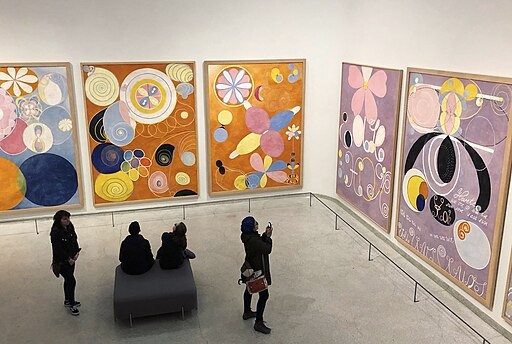
Ryan Dickey from Evanston, IL / Chicago, United States, CC BY 2.0 https://creativecommons.org/licenses/by/2.0, via Wikimedia Commons
It was not until the 1960s that her remarkable works saw the light of day, leading to the establishment of a foundation to preserve her artistic legacy. Since the 1980s, her captivating creations have been celebrated in solo exhibitions around the world, including a monumental retrospective at the Guggenheim in New York City in 2018-2019. Notably, the exhibit perfectly embodied her artistic vision, with her artwork displayed in a rising cyclical layout, a concept she had envisioned long before.
We are excited to show the film, Hilma, on May 31-June 3, at 7:30 p.m. at the Knickerbocker Theatre (86 East 8th Street) in downtown Holland, Michigan. The film is in English with a 2-hour run time.
Want to learn more about Hilma af Klint?
Listen to this podcast
Katy Hessel and Guggenheim curator Tracey Bashkoff discussing Hilma af Klint.
Watch this short video
The Guggenheim created a short video about af Klint in conjunction with their 2019 exhibition of her work.
Buy a book from your favorite independent bookseller
You can buy a variety of books locally or online. Don’t worry. We asked Jeff Bezos and he feels he can absorb the revenue loss. PLUS — we’ll be giving away one copy of Julia Voss’ 2022 book, Hilma af Klint: A Biography every night we show the film.
Visit the Kruzienga Art Museum (KAM)
Do they have works by af Klint? Well, no, but you should always spend more time with great art. And you can visit the KAM for free!


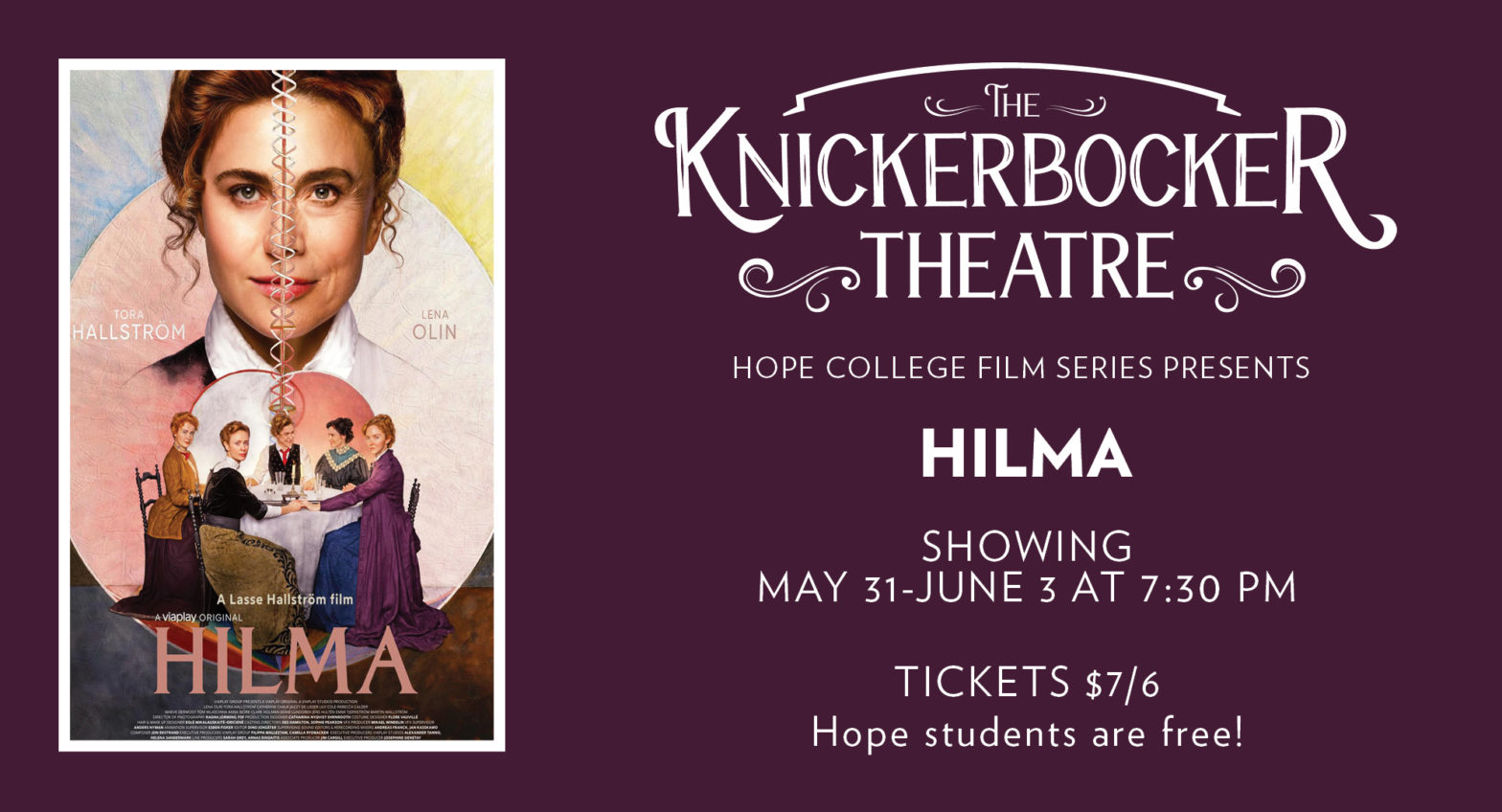





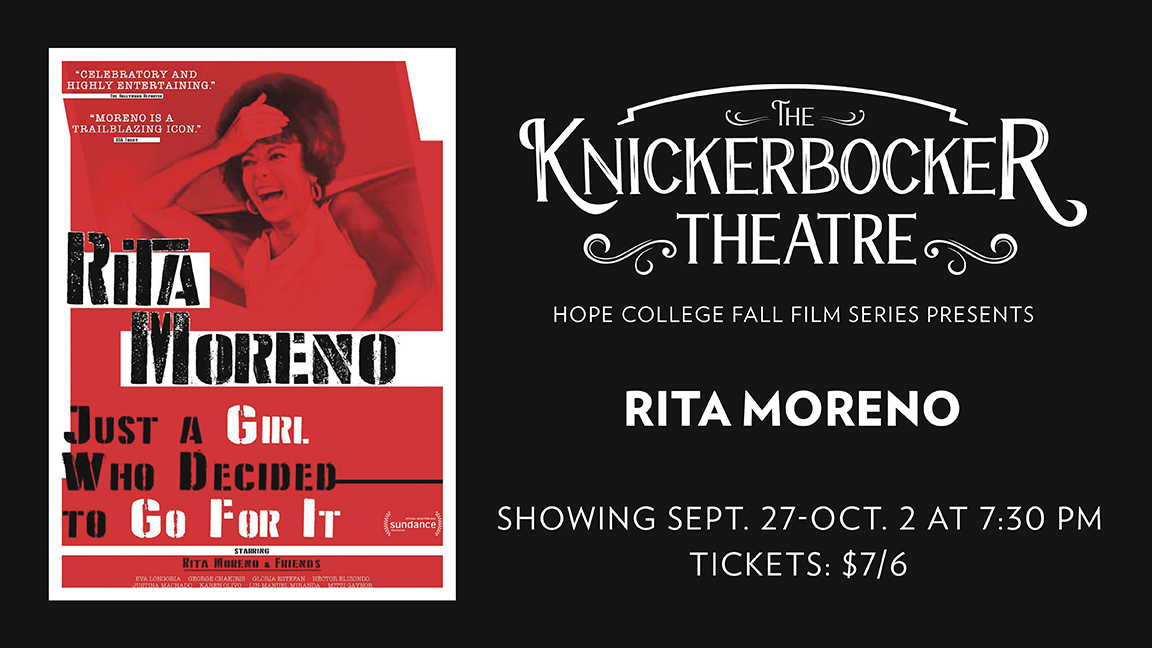
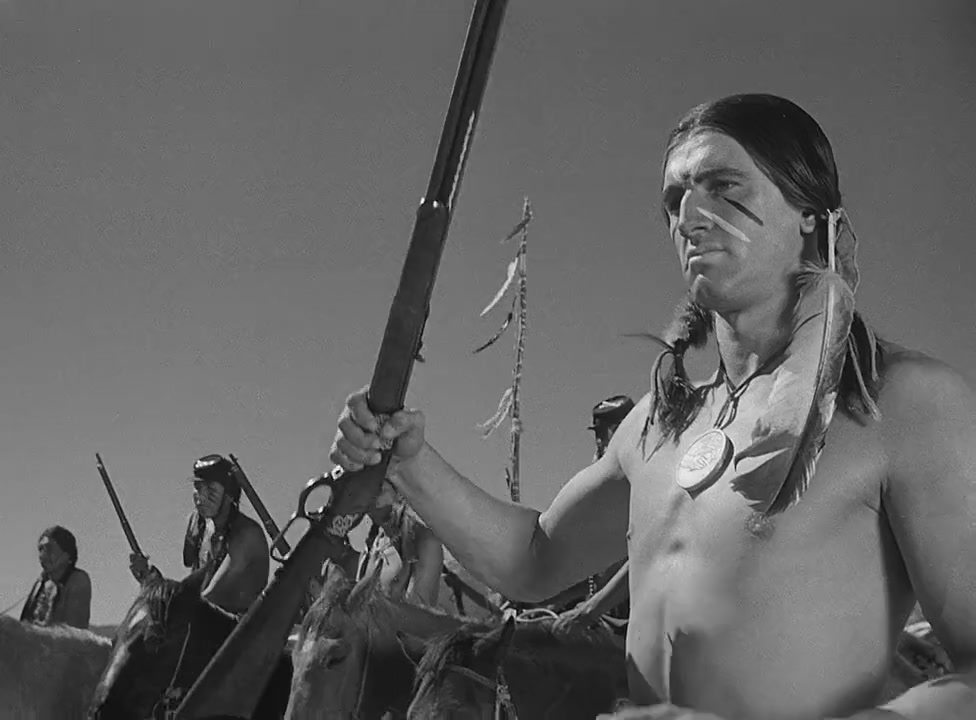
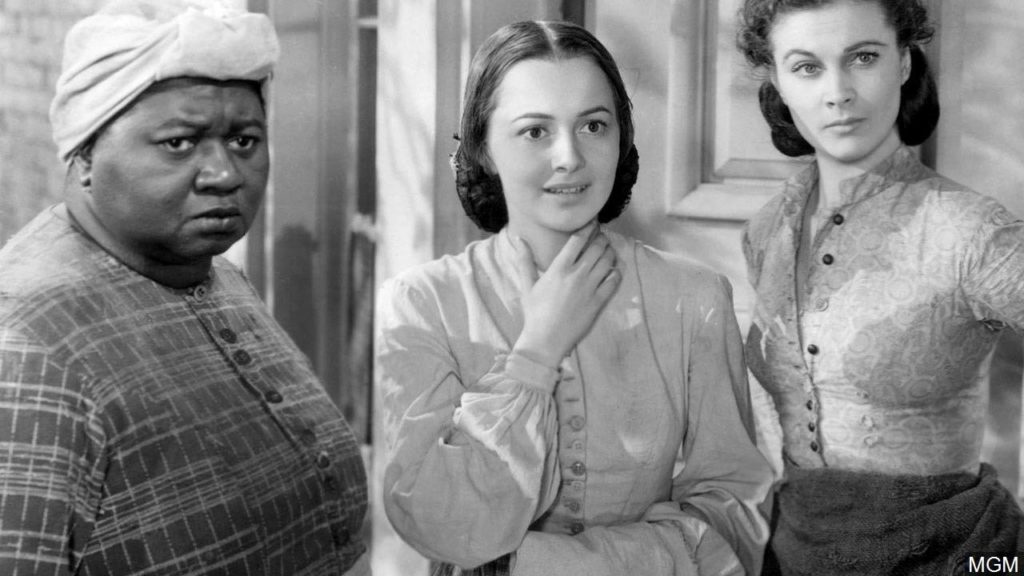
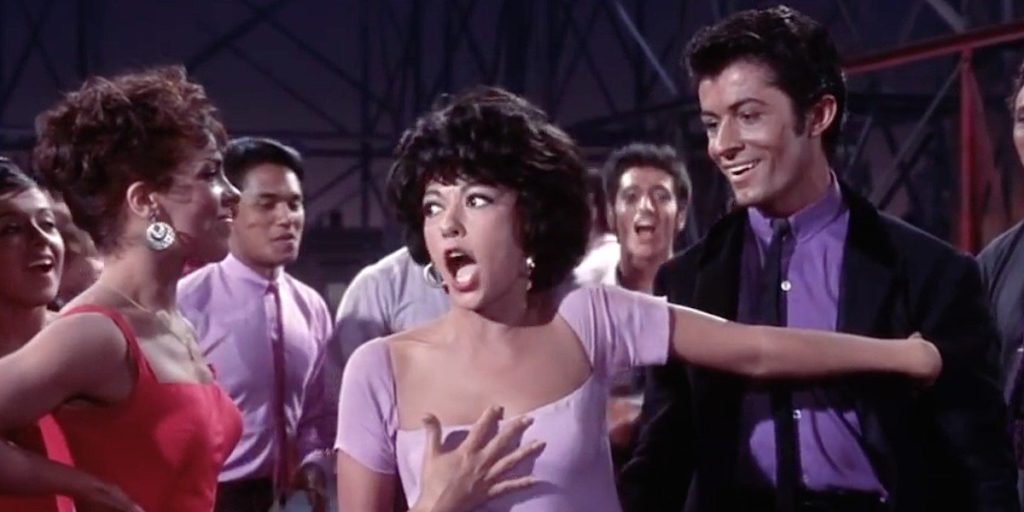
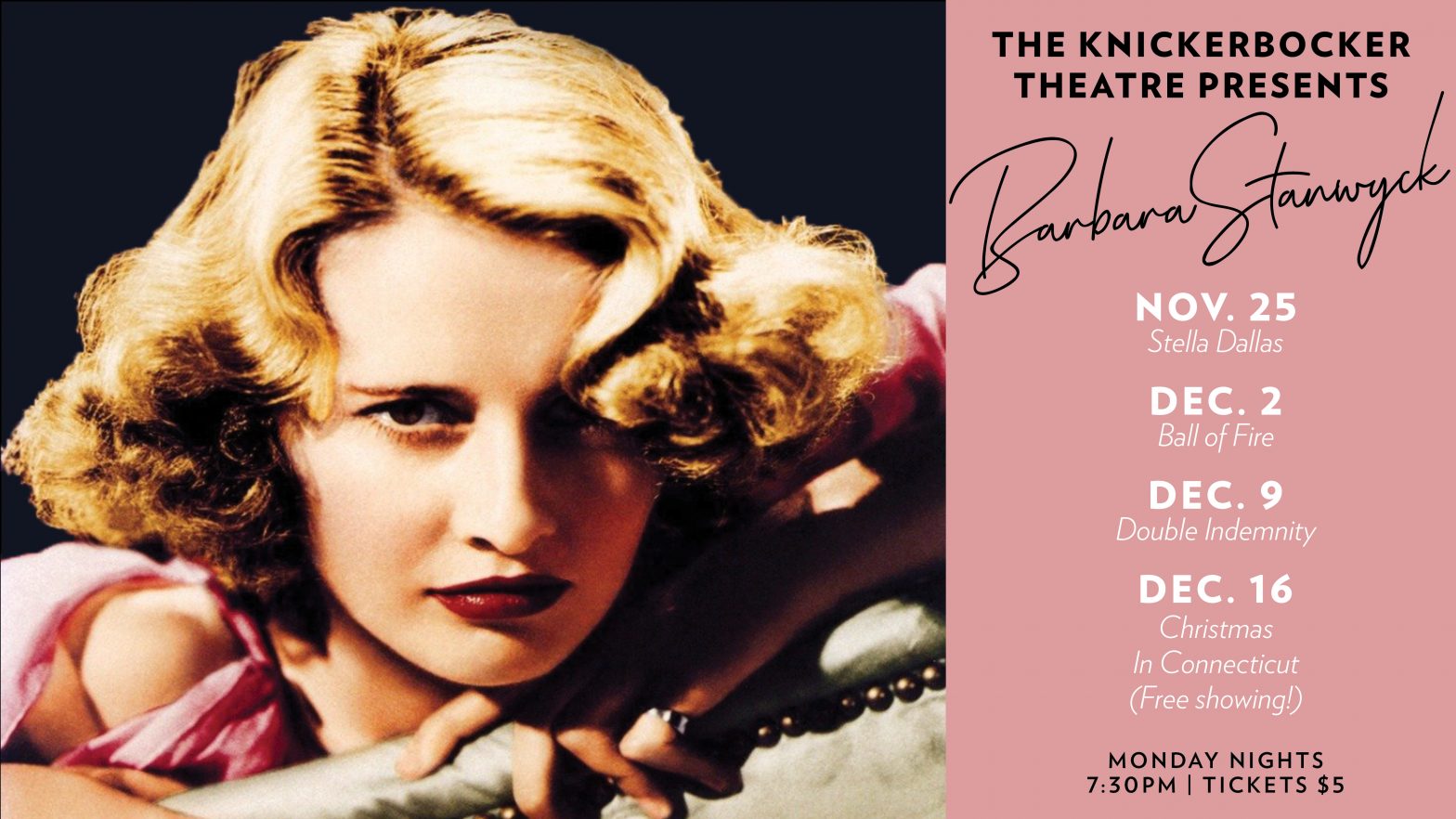
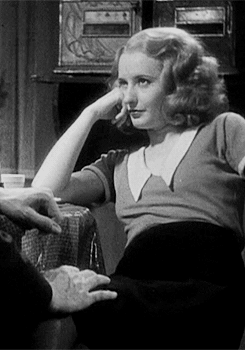
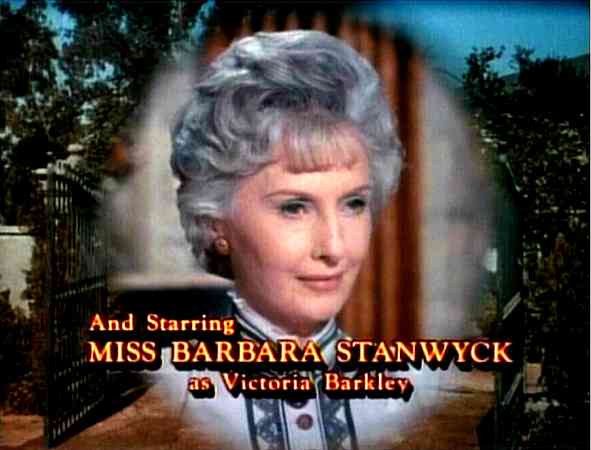
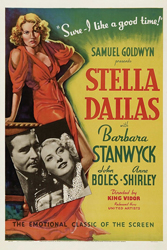
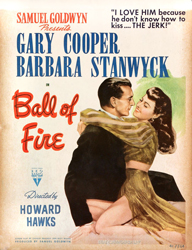
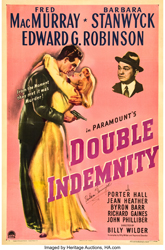
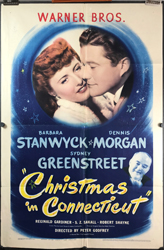
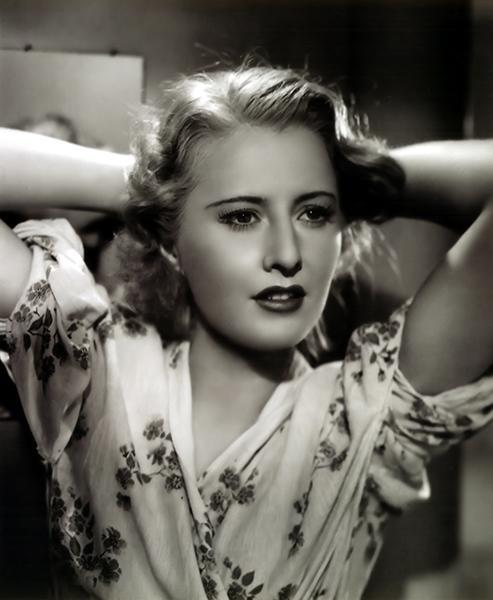





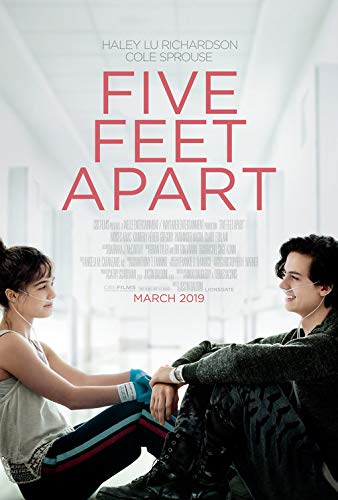
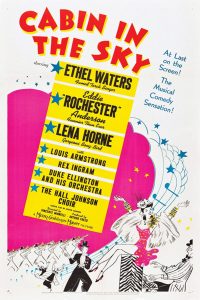 If you look at the Knickerbocker Theatre lineup for classic musicals, don’t be alarmed if one of them does not ring a bell. Sure, we’ve got Elvis in Jailhouse Rock, the big musical, Sound of Music, and even something fairly recent, Grease (“fairly recent” is defined as anything that I actually saw in the movie theatre). But, Cabin in the Sky?
If you look at the Knickerbocker Theatre lineup for classic musicals, don’t be alarmed if one of them does not ring a bell. Sure, we’ve got Elvis in Jailhouse Rock, the big musical, Sound of Music, and even something fairly recent, Grease (“fairly recent” is defined as anything that I actually saw in the movie theatre). But, Cabin in the Sky?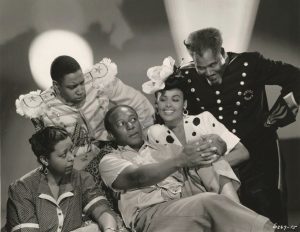
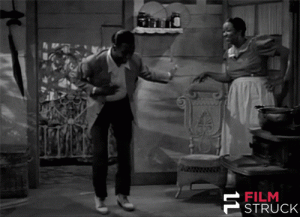
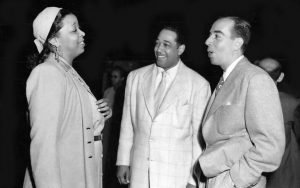
 “Ramen Shop,” showing Monday-Saturday, May 13-18, is a Singaporean-Japanese drama that tells the story of Masato, a ramen chef who lives in the city of Takasaki in Japan. After the sudden death of his distant father and the finding of a notebook that belonged to his mother, who died when he was 10, Masato decides to travel to Singapore to piece together the story of his life and the past of his family. The Hollywood Reporter has described “Ramen Shop” as “mouth-watering.” The film is not rated and is in Japanese, English and Mandarin with English subtitles.
“Ramen Shop,” showing Monday-Saturday, May 13-18, is a Singaporean-Japanese drama that tells the story of Masato, a ramen chef who lives in the city of Takasaki in Japan. After the sudden death of his distant father and the finding of a notebook that belonged to his mother, who died when he was 10, Masato decides to travel to Singapore to piece together the story of his life and the past of his family. The Hollywood Reporter has described “Ramen Shop” as “mouth-watering.” The film is not rated and is in Japanese, English and Mandarin with English subtitles.  28-June 1. After she comes across a young girl’s video plea for help after her family prevents her from taking up her studies at the Tehran drama conservatory, actress Behnaz Jafari abandons her shoot and, with filmmaker Jafar Panahi, decides to help the girl. The two friends travel to the rural Northwest, where they have amusing encounters with the charming and generous people of the girl’s mountain village, but Behnaz and Jafar also discover that old traditions die hard. “An immersive, pleasurably intelligent movie,” said The New York Times. The film is not rated and is in Persian, Azerbaijani and Turkish with English subtitles.
28-June 1. After she comes across a young girl’s video plea for help after her family prevents her from taking up her studies at the Tehran drama conservatory, actress Behnaz Jafari abandons her shoot and, with filmmaker Jafar Panahi, decides to help the girl. The two friends travel to the rural Northwest, where they have amusing encounters with the charming and generous people of the girl’s mountain village, but Behnaz and Jafar also discover that old traditions die hard. “An immersive, pleasurably intelligent movie,” said The New York Times. The film is not rated and is in Persian, Azerbaijani and Turkish with English subtitles.  “Yomeddine” will be showing on Monday-Saturday, June 3-8. The Egyptian comedy-adventure film follows Beshay, a leper who recently lost his wife, and an orphaned boy, Obama, as they leave their leper colony for the first time. The two embark on a journey across Egypt, in search of what remains of their families. Variety Magazine has called “Yomeddine” a “lovingly-made, character-driven road movie.” The film is not rated and is in Arabic with English subtitles.
“Yomeddine” will be showing on Monday-Saturday, June 3-8. The Egyptian comedy-adventure film follows Beshay, a leper who recently lost his wife, and an orphaned boy, Obama, as they leave their leper colony for the first time. The two embark on a journey across Egypt, in search of what remains of their families. Variety Magazine has called “Yomeddine” a “lovingly-made, character-driven road movie.” The film is not rated and is in Arabic with English subtitles.  June 10-15. The film takes place in 1613 and imagines the later life of William Shakespeare. After his renowned Globe Theatre burns to the ground, Shakespeare returns to Stratford, where he must face a troubled past and a neglected family. Haunted by the death of his only son, Hamnet, he struggles to mend the broken relationship with his wife and daughters. The film stars Kenneth Branagh, Judith Dench and Ian McKellen. The Guardian has called “All is True” a “convincing and elegant imagining of Shakespeare’s final years.” The film is rated PG-13.
June 10-15. The film takes place in 1613 and imagines the later life of William Shakespeare. After his renowned Globe Theatre burns to the ground, Shakespeare returns to Stratford, where he must face a troubled past and a neglected family. Haunted by the death of his only son, Hamnet, he struggles to mend the broken relationship with his wife and daughters. The film stars Kenneth Branagh, Judith Dench and Ian McKellen. The Guardian has called “All is True” a “convincing and elegant imagining of Shakespeare’s final years.” The film is rated PG-13.  Swedish author Astrid Lindren (Alba August), the author of over 100 children’s books, including the Pipi Longstocking series. Teenage Astrid breaks free of the confines of her conservative upbringing in rural Sweden, accepting an internship at a local newspaper, and later becoming pregnant after attracting the attention of the newspaper’s editor, Blomberg (Henrik Rafaelsen). Astrid leaves her childhood home and goes to Copehagen to secretly give birth to a son, Lasse, whom she reluctantly leaves in the care of a foster mother, Marie (Trine Dryholm) as she goes into self-imposed exile in Stockholm. When Marie mother falls ill, Astrid uses her imagination and flair for storytelling to reconnect with her son, establishing a newfound courage that will later form the foundation of her work. This film is in Swedish with English subtitles and is not rated. It has a running time of two hours and three minutes.
Swedish author Astrid Lindren (Alba August), the author of over 100 children’s books, including the Pipi Longstocking series. Teenage Astrid breaks free of the confines of her conservative upbringing in rural Sweden, accepting an internship at a local newspaper, and later becoming pregnant after attracting the attention of the newspaper’s editor, Blomberg (Henrik Rafaelsen). Astrid leaves her childhood home and goes to Copehagen to secretly give birth to a son, Lasse, whom she reluctantly leaves in the care of a foster mother, Marie (Trine Dryholm) as she goes into self-imposed exile in Stockholm. When Marie mother falls ill, Astrid uses her imagination and flair for storytelling to reconnect with her son, establishing a newfound courage that will later form the foundation of her work. This film is in Swedish with English subtitles and is not rated. It has a running time of two hours and three minutes.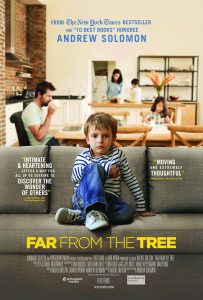 kids that society has deemed “abnormal.” The documentary is based on Andrew Solomon’s New York Times best-selling book Far From the Tree: Parents, Children and the Search for Identity and offers a look at how families are meeting extraordinary challenges through love, empathy and understanding. The
kids that society has deemed “abnormal.” The documentary is based on Andrew Solomon’s New York Times best-selling book Far From the Tree: Parents, Children and the Search for Identity and offers a look at how families are meeting extraordinary challenges through love, empathy and understanding. The 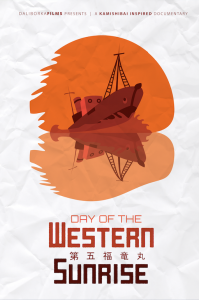 three survivors from a Japanese tuna trawler Daigo Fukuryu Mary, or the Lucky Dragon No. 5, who were fishing off the coast of the Marshall Islands on March 1, 1954, when the US detonated Castle Bravo, the first in a series of hydrogen weapon tests. The film adapted a Japanese storytelling method known as “kamishibai,” which means “paper drama,” to intimately retell the fishermen’s story, and the devastation still felt in Japan almost 65 years later. Paying homage to this Japanese art form, all the film’s scenes consist of individual drawings with paper texture being animated in a 3-D environment. The film is in Japanese with English subtitles and is not rated.
three survivors from a Japanese tuna trawler Daigo Fukuryu Mary, or the Lucky Dragon No. 5, who were fishing off the coast of the Marshall Islands on March 1, 1954, when the US detonated Castle Bravo, the first in a series of hydrogen weapon tests. The film adapted a Japanese storytelling method known as “kamishibai,” which means “paper drama,” to intimately retell the fishermen’s story, and the devastation still felt in Japan almost 65 years later. Paying homage to this Japanese art form, all the film’s scenes consist of individual drawings with paper texture being animated in a 3-D environment. The film is in Japanese with English subtitles and is not rated.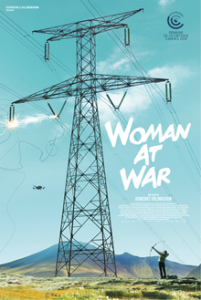 The Icelandic comedy-drama
The Icelandic comedy-drama 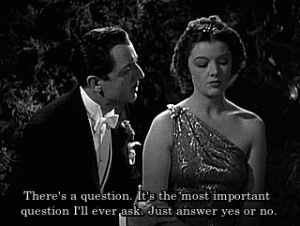 The question is asked often: How do you select the films for your series?
The question is asked often: How do you select the films for your series? We open with “What Will People Say” which is a dramatic film focusing on the clash of cultures as a young Pakistani woman wrestles with her birth culture and her upbringing. From there we go to the documentary, “Love, Gilda” about Gilda Radner who was a driving force on the original Saturday Night Live. As many of you know, Radner battled an eating disorder and then died from ovarian cancer when she was just 42. Next, we go to the heart of the U.S. with “Neither Wolf, Nor Dog,” a film based on a popular novel about a white writer called by a Lakota Elder to help him write a book. We end with a Norwegian film, “Gavagai,” about a widower seeking to finish his wife’s work of translating the poetry of Tarjei Vessas, which is featured in the film.
We open with “What Will People Say” which is a dramatic film focusing on the clash of cultures as a young Pakistani woman wrestles with her birth culture and her upbringing. From there we go to the documentary, “Love, Gilda” about Gilda Radner who was a driving force on the original Saturday Night Live. As many of you know, Radner battled an eating disorder and then died from ovarian cancer when she was just 42. Next, we go to the heart of the U.S. with “Neither Wolf, Nor Dog,” a film based on a popular novel about a white writer called by a Lakota Elder to help him write a book. We end with a Norwegian film, “Gavagai,” about a widower seeking to finish his wife’s work of translating the poetry of Tarjei Vessas, which is featured in the film.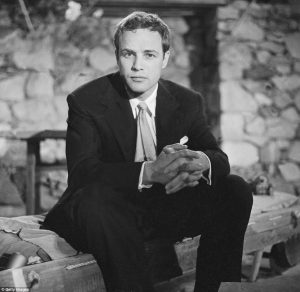 In an era where we watch stars self-destruct on too regular of a basis, the career of Marlon Brando can offer these people both lessons and hope. After bursting onto the scene in the 1950s (and our series focuses on four films released between 1952-1954), Brando’s personal life and career went off the track in the 1960s. He went ten years without making a successful film and it looked like his legacy would rest on his solid early work. Then came his second Academy Award for The Godfather in 1972 followed by another nomination for his work in the controversial Last Tango in Paris. My introduction to Brando was at the Holland Theatre (now the Knickerbocker) in 1979 when my oldest brother took me to see Apocalypse Now since he felt all 15-year-olds should see that film. It was a memorable experience as Brando slowly leans forward in the light, rubbing that bald head and mumbling.
In an era where we watch stars self-destruct on too regular of a basis, the career of Marlon Brando can offer these people both lessons and hope. After bursting onto the scene in the 1950s (and our series focuses on four films released between 1952-1954), Brando’s personal life and career went off the track in the 1960s. He went ten years without making a successful film and it looked like his legacy would rest on his solid early work. Then came his second Academy Award for The Godfather in 1972 followed by another nomination for his work in the controversial Last Tango in Paris. My introduction to Brando was at the Holland Theatre (now the Knickerbocker) in 1979 when my oldest brother took me to see Apocalypse Now since he felt all 15-year-olds should see that film. It was a memorable experience as Brando slowly leans forward in the light, rubbing that bald head and mumbling.